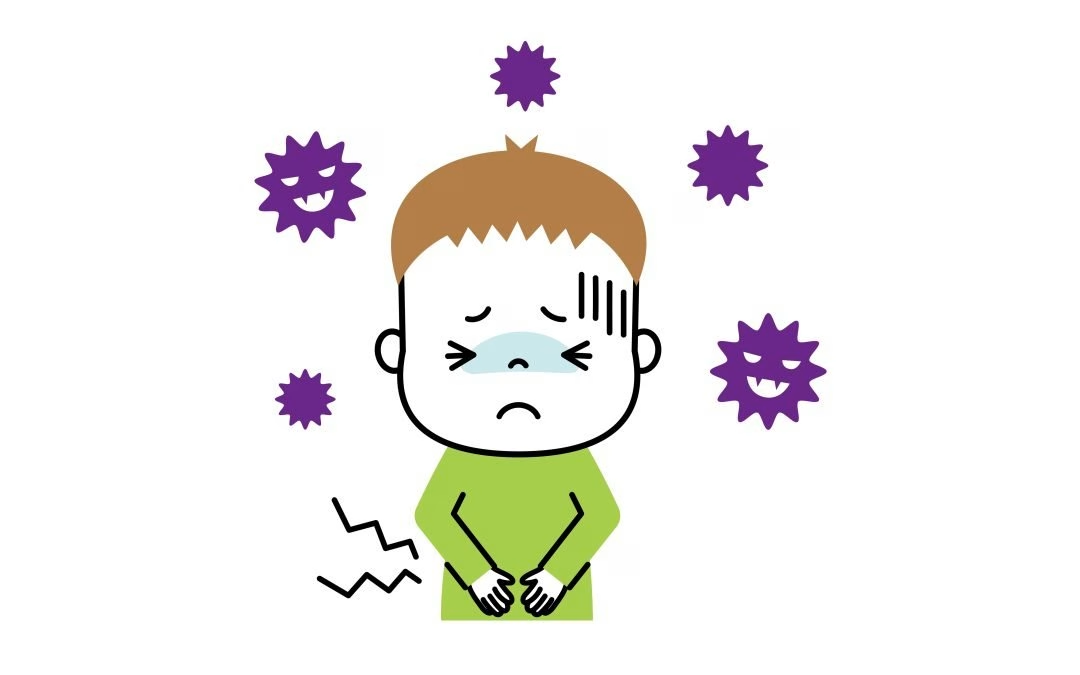
Keep your kids safe from food-borne illnesses this holiday season with these tips. Visit urgent care if symptoms arise – no appointment needed, walk-ins welcome!
The holiday season is a time for festive meals and family gatherings, but it’s also a peak period for food-borne illnesses. As you prepare delicious holiday dishes, it’s important to think about how to keep your little ones safe. Whether you’re gathering at local spots like Fountain City Park for a winter picnic or hosting a holiday feast at home, food safety should always be top of mind. This time of year, foods like turkey, casseroles, and sweet treats are on the menu, but they also carry risks—especially for children. Kids are more vulnerable to food-borne illnesses due to their developing immune systems, so it’s crucial to take extra precautions to protect them.
Visit AFC Fountain City today.
Why Are Kids More Vulnerable to Food-borne Illnesses?
Children are more vulnerable to food-borne illnesses for several reasons. Their immune systems are still developing, which makes them more susceptible to infections caused by bacteria like E. coli, Salmonella, and Listeria. This is why it’s so important to practice good food safety habits during holiday gatherings, both at home and while out enjoying local events in Fountain City like the Fountain City Christmas Parade or a visit to the Fountain City Lake. By being proactive, you can minimize the risk of food-borne illnesses and ensure your children stay healthy during the festivities.
What Holiday Foods Are Risky for Kids?
Certain foods commonly served during the holidays are more likely to cause food-borne illnesses, especially for children. Understanding these risks is key to keeping your kids safe at family meals and gatherings.
- Cookie dough: Raw cookie dough is a holiday favorite, but it’s also a major food safety risk. The raw eggs and unbaked flour used in many recipes can harbor bacteria like Salmonella and E. coli. Instead of allowing your kids to taste-test dough before it’s cooked, opt for safe, egg-free recipes or use pasteurized eggs.
- Turkey: Turkey is a classic holiday dish, but undercooked turkey can lead to Salmonella poisoning. It’s essential to use a meat thermometer to ensure the turkey reaches an internal temperature of 165°F before serving, which kills harmful bacteria. Avoid letting kids eat any undercooked meat, as their immune systems are especially susceptible to infection.
- Soft cheeses: Certain types of soft cheeses, like brie or camembert, can contain Listeria, a bacteria that poses a risk to children. Pregnant women and young kids are particularly vulnerable to Listeria infections, which can cause serious illness. Opt for hard cheeses, like cheddar or mozzarella, which are safer options.
How Can I Prepare Kid-Friendly Holiday Meals?
While some foods may be risky for children, there are several ways you can keep holiday meals safe and fun for kids. By following these tips, you can ensure your little ones enjoy all the seasonal flavors without putting their health at risk.
- Use pasteurized eggs for baking: If your family loves to bake cookies or other treats with raw egg batter, make sure to use pasteurized eggs to eliminate the risk of Salmonella. These eggs are treated to kill harmful bacteria, making them safe to consume even in their raw state.
- Serve foods promptly: Perishable foods should never be left out for more than two hours. Bacteria multiply rapidly at room temperature, so make sure to serve hot dishes right away and refrigerate leftovers promptly. If you’re hosting a gathering, consider using warming trays to keep food at a safe temperature while you enjoy a holiday walk at Fountain City Park or after you’ve finished shopping at Fountain City Shopping Center.
- Encourage hand washing: One of the simplest and most effective ways to prevent the spread of bacteria is to encourage kids to wash their hands before and after eating, especially after playing outside or handling raw foods during meal prep. Make it fun by turning handwashing into a holiday-themed activity, like singing a festive song while scrubbing.
When Should I Take My Child to Urgent Care for Food Poisoning?
Despite your best efforts, food-borne illnesses can still happen. It’s important to know when to seek medical care for your child if they start experiencing symptoms of food poisoning. You should take your child to urgent care if they exhibit any of the following:
- High fever: A fever above 102°F can indicate a more serious infection and may require medical attention.
- Bloody diarrhea: If your child experiences bloody stools, it could be a sign of a bacterial infection like E. coli.
- Symptoms lasting more than a day: If food poisoning symptoms persist for more than 24 hours, or if your child shows signs of dehydration (dry mouth, dizziness, or dark-colored urine), it’s time to visit urgent care. Urgent care clinics can provide fluids and treatment to help your child recover quickly and safely.
By staying informed and following these food safety tips, you can protect your children from food-borne illnesses while still enjoying all the delicious dishes the holiday season has to offer. If symptoms do arise, remember that AFC Fountain City is here to help you and your family get back to feeling better fast.


